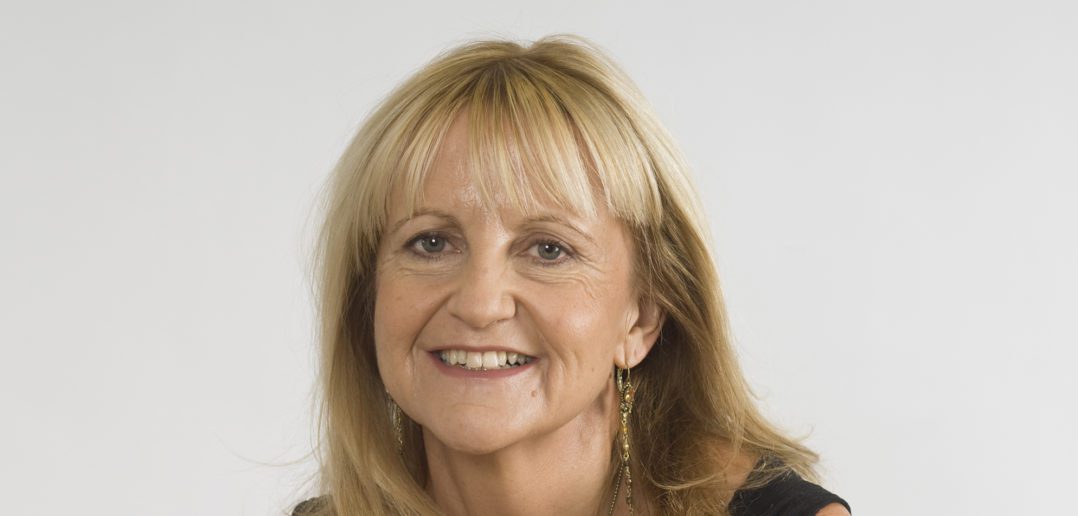In this series of articles leading up to MIPCOM 2019 we hear views from executives around the world on the changing face of the international distribution industry.
As chief executive of Endemol Shine International, Cathy Payne oversees a library of around 50,000 hours of completed programming and 3,000 formats. Last year, the company generated more than $250m in revenues – thanks to titles including Masterchef, Broadchurch, Peaky Blinders and Grantchester. The latter show, recently re-commissioned by ITV in the UK, has been sold to more than 170 countries worldwide. Here, Cathy kicks off a series of interviews in our series: Who needs distributors? Roadmaps for the streaming offensive.

How would you assess the future prospects for distributors?
The introduction of new services is healthy for the business and ultimately for the consumer/viewer. We talk a lot about Netflix and new streaming services such as Disney+ and HBO Max, however our industry also consists of many existing linear services, which also have continuing and growing demand for content as they look to compete. Commercial and public broadcasters are actively expanding their VOD offerings, which can take the shape of FVOD, AVOD or SVOD models. All channels and platforms will be seeking first-window exclusive periods where they can offer content to a viewer in a number of different ways, with the level of exclusivity a function of budget. Library product is also very much in focus as all services need this product to sustain their services – recent stories around The Office and Friends illustrate this. The BritBox launch announcement was also led by the depth of the BBC/ITV library.
Do you think the global players will do market-by-market deals?
Global platforms in general will be commissioning for a global reach. However that doesn’t mean that every piece of content has to have the same global appeal. Netflix and Amazon have both commissioned product that may be more relevant for one territory, but they take global rights. The importance of co-productions will remain – Netflix has spoken about this recently. We also must keep in mind that, to fully maximise content and its investment, distributors exploit more than one set of rights. While exclusive windows may be longer, there will be a time in a product lifecycle when other windows are exploited.

What would you say are the biggest challenges facing distributors?
Consolidation in distribution continues to be an issue. This year there are examples including Disney/21st Century Fox, ATT/Time Warner and Comcast/Sky Vision – and others are expected. Distribution relies on a supply of content, so distributors with no in-house supply will be challenged. Distribution will continue to be defined by the big and boutique players. So availability of a product supply line is critical. In terms of the cost of content, the large increases for scripted content can be challenging. The key issue here is to ensure increases end up on screen and that the cost of production reflects the audience reach for a particular piece of content. Funding expensive budgets means that, potentially, more of the available sales revenue is taken off the table to fund the show, therefore delaying royalties post recoupment of the production budget. For producers that have enjoyed successful royalty income, they understand the value of that and will strive to manage budgets so that is not damaged.
What is the key to survival as a distributor?
Product supply is number one. Successful distributors have long-standing relationships with producers and have worked hand in hand to see programming financed and placed. I always say in distribution you serve two sets of clients – the content makers you represent and the broadcasters and platforms you licence to. All the professional basics still apply: know your market, your potential target, the economics of the market, be flexible and agile. We began as part of an integrated production/distribution business so it has always been natural for us to work with producers from concept stage.
How is your own business adapting to the changing landscape?
We have always been focused on having a broad portfolio of content across scripted and non-scripted, and across English and non-English languages – which reflects the ESG group and its territory reach. We have also balanced in-house and third-party relationships. Our considerations are always global while servicing local market needs. So in summary: nothing has changed other than being even more focused on the projects we choose and when the distribution cost is higher, we double down on all our assessment, editorially and financially.

Have you developed new models – for example as a ‘mini-commissioner’?
Endemol Shine International does not pursue the ‘mini-commissioner’ model, i.e. self-funding production without a primary end user. A primary end user is important as it says so much about a project and its tone and likely audience reach. We do get involved in supplying an additional level of development funding when a producer may want to take out a project further developed than what would be normal, whether that would be through attachment of talent or funding an additional script. We always strive to ensure that our distribution deals offer all partners the opportunity for joint success.
Have you accessed any non-traditional sources of revenue?
While a number of our labels are involved in brand-funded production, this is not a model used for distribution. For particular projects, there are funds involved in their financing which require a different type of dealmaking with the distributor. We also have accessed the ability to bank long-term contracts.
What is the next big thing likely to impact your business?
The next 12 to 18 months will be dominated by the launch of the new global streaming services. Will the skinny bundle model continue to extend and how many services will a consumer ultimately pay for? Certainly for sport we see how the various passes to buy a match, a league, a weekend pass have all been adopted. How the AVOD model sustains on a standalone territory or global basis will be very interesting, in particular considering the majority are non-exclusive.




